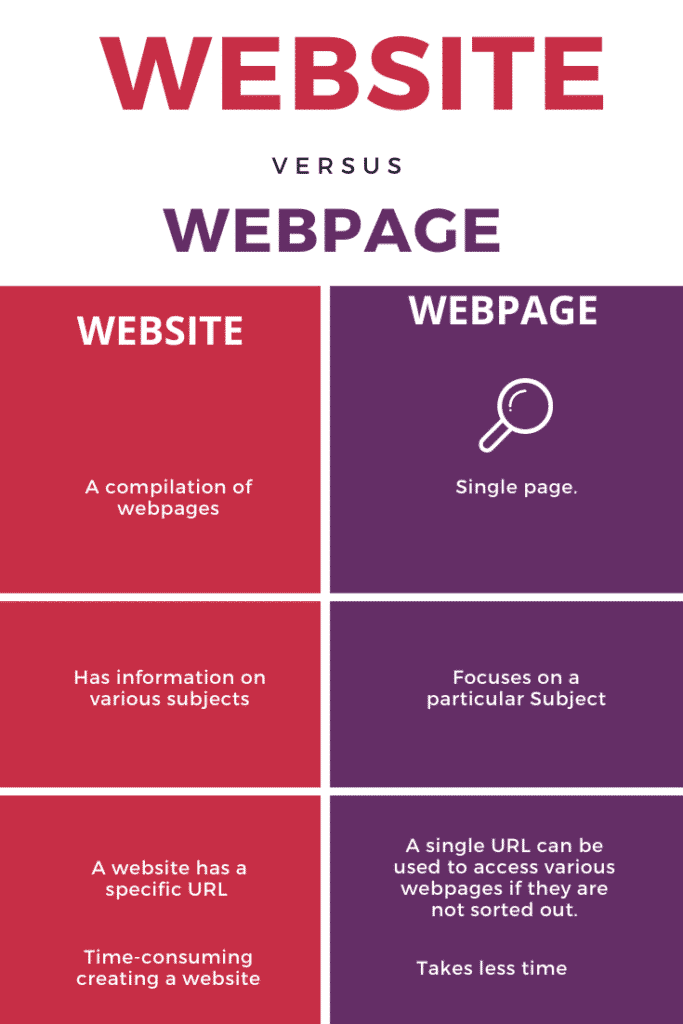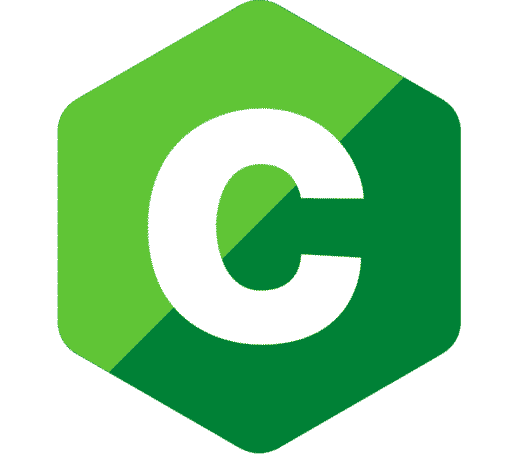The terms webpage vs website may seem similar. However, these two are very different.
How so? let me explain.
In this article, I will explain the core differences in terms of definition, address dependency, extension, and development period.
That will help you use the words in the right context. You will also uncover why it is crucial to know the difference.
Without wasting much time, let’s get into business
While many people assume that everybody knows the difference between a webpage and a website, that is not the case. There is still confusion and misconception out there.
Truth be told.
Not everybody is tech-savvy, and often these two terms are used interchangeably. People do not have a problem with only these two words.
Navigating through all the tech terms is difficult, especially if technical terms are involved. For instance, you will hear people using the terms app and application to mean the same thing.
That is very wrong. Sounds new to you. Right?
Ideally, an app is a software whose main job to perform one function, such as a mobile banking app.
→Download Now: Free Content Marketing Strategy For Affiliate Marketers
On the other hand,
An application is a software that is meant to fulfil many purposes such as a word processing program. The two terms are similar, but they do not mean the same thing.
Similarly, webpages and websites are similar, but there are core differences between them. It is vital to understand the contrast to use them in the right context and avoid confusion.
Understanding The Key Differences Between Webpage And A Website
The simplest way of understanding the difference is to view a website as a book and webpages as the pages contained in the table.
| Website | webpage |
| A compilation of webpages | Single page |
| Has information on various subjects | Focuses on a particular Subject |
| A website has a specific URL | A single URL can be used to access various webpages if they are not sorted out. |
| Time-consuming creating a website | Takes less time |
By definition, a webpage is a single page of a website. It focuses on a particular subject or topic.
For instance, most sites will have webpages such as Homepage, Services page, About Us page, and Contact Us page.
Each page has a specific subject that it dwells on hence the unique names as well.
Accessing a webpage can be done using a URL, and you can copy and share the page. The URL contains an extension such as PHP, HTML, etc.
In contrast,
A website URL has no extension. Additionally, you do not need any navigation when viewing a webpage, unlike viewing websites. A webpage might contain graphics, text, video, audio, and even downloadable hyperlinks to other pages.
The contents of a webpage are displayed through connecting to a server for the remote files to be viewed. Various programming languages such as PHP, HTML, Perl, Python, and many more come in handy in creating the data.
Webpages created through HTML have a simple appearance and are not as interactive compared to the ones created through advanced programming languages. However, HTML pages take less time to browse and load. Overall, designing webpages is faster than developing an entire website.

There are static and dynamic webpages. Static webpages are created in such a way that, if a product acquires any changes in the information, then the changes must show on the website.
Here, a person has to include the changes manually, a process that is tedious and time-consuming. On the other hand, dynamic webpages are flexible as the product information storage is in a central database.
Hence, the changes need to be updated on the database. Therefore, several dynamic webpages can be created using relevant information from the specific database.
A website is a group of webpages that are located on an internet domain. For instance, a company website can have different webpages such as home, products, services, and others.
It can be accessed via a web address and can have dynamic webpages or static webpages. A website should have a unique URL, while multiple webpages can share the URL until they are placed in different documents.
That means that the website address determines the webpage address. Website content can be viewed globally, and it remains the same for all viewers.
Websites are used for educating visitors about products or services in most cases. They must be hosted on a server for people to gain access to them on the internet.
Reasons That Make The Difference Matter
When someone performs a search, the Google algorithm shows the web pages that are most relevant and not the most significant websites. For example, when you search for “Women’s shoes.” The first pages do not show Macy’s .com but Macy’s .com women’s shoes page.
The reason is that the search engine tries to get you results that bring you as close as possible to the content you need. That shows how SEO is essential for webpages.
Your whole website needs search engine optimization, but it is more critical to optimize single webpages, blog posts and landing pages as that is how Google’s algorithm operates.
It indexes significant webpages to display in their SERPs and not relevant websites. Note that the authority of your site matters, and it affects the ranking.
It is vital to focus on optimizing not one, but each of all the webpages on your website for the key phrases you want to fulfil your ranking. You need to optimize every webpage to drive traffic to your site.
Optimizing your webpage and website
You can optimize a webpage in different ways. You can optimize URLs by including significant keywords and having a clear website structure with direct categories.
Additionally,
Maximize webpage titles but set a limit of 69 characters. You can also have exciting webpage descriptions, headings, and compelling content.
Also, use keywords naturally and frequently and include images, inbound and outbound links, and a search engine friendly webpage layout. Do not be confident that since your home page is optimized, all is well.
You need to optimize all the webpages of your site for the best outcome.
Optimizing a website entails making webpages load faster, maximizing user experience, and having high-quality content, keywords, and images for every webpage.
Conclusion
If you do not know the definition of a webpage or website and their significant differences, your SEO efforts will suffer, and your marketing campaign might fail.
Hence, understanding the core differences discussed herein is vital. You want your website to attract as many viewers as possible.

Share This Infographic With Your Audience
<p><strong>Please include attribution to www.contentclerks.co with this graphic.</strong><br /><br /><a href=’https://contentclerks.co/webpage-vs-website-what-is-the-difference/’><img src=’https://contentclerks.co/wp-content/uploads/2020/12/Website-vs-webpage.png’ alt=’An infographic showing the difference between a website and a webpage’ width=’1102px’ border=’0′ /></a></p>
What is the difference between website and webpage?
A webpage is an independent part of the website and it contains links to other webpages on the website. On the other hand, a website is a collection of webpages.
What do you mean by website and webpage?
Webpages are what make the website and they are written in HTML.
Is Google a website or webpage?
Since it is a collection of webpages, Google.com is a a company and a website.

